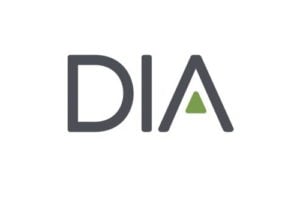Writing in the June edition of DIA’s Global Forum magazine, Ellen Sem, Fengyun (Vicky) Han and Annetta C. Beauregard from Janssen Pharmaceutical Companies of Johnson & Johnson, outline the real-world data (RWD) and real-world evidence (RWE) regulatory landscape in Asia Pacific.
Real-world data (RWD) and real-world evidence (RWE) have played an increasingly important role in regulatory decision making in recent years. RWE has been commonly accepted by regulators for post-marketing safety surveillance activities but less so in the pre-marketing authorization phase. However, the pandemic provided an opportunity for regulators to assess the applicability of RWE to enable emergency use authorization or conditional approval of COVID-19 vaccines.
According to a statement issued by the International Coalition of Medicines Regulatory Authorities (ICMRA), international regulators collaborated and shared knowledge in assessing RWE generated from observational studies which complemented the evidence generated from clinical trials conducted on potential therapeutics or vaccines against COVID-19. With regulators gaining more experience in applying RWE for pre-marketing authorization, regulatory agencies in Asia Pacific have started to develop new regulatory policies and guidance documents regarding the use of RWE to support development of pharmaceutical products. This article summarizes the RWE regulatory landscape in the Asian-Pacific markets of Australia, China, Japan, South Korea, and Taiwan.
Australia
No formal regulatory guidance regarding RWE is currently available in Australia. In November 2021, the Therapeutic Goods Administration (TGA) published the report Review of real world evidence and patient reported outcomes, which provides insights on TGA’s position on RWE and patient reported outcomes (PRO). The report concluded that RWE already underpins TGA’s post-marketing safety studies on medicines, vaccines, and medical devices: TGA accepts the inclusion of RWE and PROs in submissions and assesses them during the pre-market review process. However, TGA recognizes that there could be better communication internally and externally on how TGA uses RWE and PROs in pre-market approval of products. The report highlights key next steps that TGA intends to undertake, including providing more clarity and transparency on how RWE and PROs can support approval applications and how TGA uses RWE and PROs in making decisions.
China
The RWE regulatory landscape in China has been dynamic and rapidly evolving, with the National Medical Products Administration (NMPA) leading this trend into drugs for pediatrics and other special populations. In August 2018, the Wu Jieping Medical Foundation released China’s Real World Research Guide, and several articles explaining the application of RWD including technical specifications, research design, data management, and statistical analysis were published in July 2019 by the China Real World Evidence Alliance (ChinaREAL). This Alliance was established in 2017 to help promote use of RWE for healthcare and policy decisions through partnerships with regulatory authorities, research scientists, and other stakeholders. To date, NMPA has published three RWE guidelines:
- January 2020: Guidelines for Real-World Evidence to Support Drug Development and Review (Interim) contained the definitions of real-world research, the status and scope of RWE, evaluation principles for RWE, and scientific principles on how industry can use RWE to support drug research and development.
- August 2020: Guidelines for Using RWE for Supporting Pediatric Drug Research & Development and Evaluations (Interim) (Chinese text only) provides guidance on how to use real-world research to support pediatric drug development.
- April 2021: Guidelines for RWD Used to Generate RWE (Interim) (Chinese text only) discusses RWD applicability and data curation, data security, and data quality.
NMPA, industry, and academia continue to engage; for example, a three-year NMPA RWE project aims to study worldwide RWE policies, collect use cases, and research data standardization. The upcoming annual NMPA RWE conference will further share research results and exchange of best practices among international professionals, and help the local regulatory landscape grow more multidisciplinary. These research results and use cases will also provide the scientific basis for new RWD/RWE regulatory guidelines in the future. These stakeholders are also discussing big data, digital health, personal information protection and cybersecurity, and other relevant areas that could influence future regulatory policy or guidance.
Japan
The Ministry of Health, Labour and Welfare (MHLW) and the Pharmaceuticals and Medical Devices Agency (PMDA) are actively promoting the utilization of RWD and RWE in their regulatory decision-making processes. In 2014, PMDA published its first RWD-related Guidelines for the Conduct of Pharmacoepidemiological Studies in Drug Safety Assessment with Medical Information Databases. Between 2017 and 2021, both MHLW and PMDA released a series of documents related to post-marketing studies in Japan:
- June 2017: Basic principles on utilization of health information database for Post-Marketing Surveillance of Medical Products (Japanese text only)
- October 2017: Amendment of Ministerial Ordinance on Good Post-marketing Study Practice for Drugs (Japanese text only)
- February 2018: Points to Consider for Ensuring the Reliability of Post-marketing Database Study for Drugs
- December 2019: The Act on Securing Quality, Efficacy, and Safety of Products including Pharmaceuticals and Medical Devices (Japanese text only) was amended to clarify that academic societies, universities, institutions, and related organizations should cooperate in the appropriate use of pharmaceuticals and other medical products sold by marketing authorization holders, and collect information (including RWD) to ensure the appropriate use of pharmaceuticals and other medical products.
- March 2020: Points to Consider for Ensuring the Reliability of Post-marketing Database Study for Regenerative Medical Products
- July 2020: Basic principles in conducting a validation study of outcome definitions used for post-marketing database study (Japanese text only)
- March 2021: Basic Principles on Utilization of Registry for Applications and Points to Consider for Ensuring the Reliability in Utilization of Registry Data for Applications address registry data utilized during a product’s lifecycle from pre-approval, re-examination, application after conditional and time-limited approval, to labeling update.
In April 2021, the PMDA established its RWD working group to discuss regulatory issues related to RWD/RWE, such as data reliability standards and methodological approaches, and seeks to continuously promote utilization of RWD in the Japanese regulatory framework. PMDA published a summary of results of studies utilizing the medical information database network MID-NET, which evaluates the safety of drugs based on electronic medical information accumulated and registered by daily medical practice in medical institutions.



